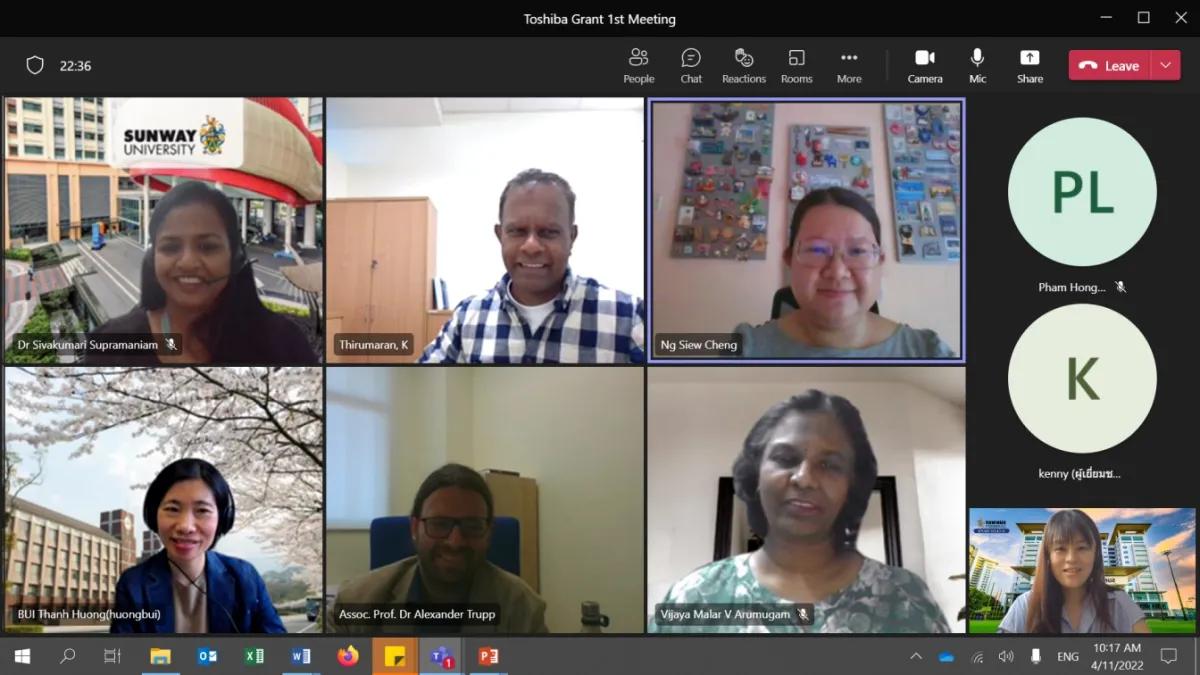Toshiba International Foundation Grant 2022 Funds the Asian Culture of Health (CoH) Framework
In this funded project, the Sunway research team is working with experts from Japan - Prof Huong, T. Bui (Ritsumeikan Asia Pacific University); Singapore - Dr K Thirumaran (James Cook University); Vietnam- Assoc. Prof. Pham Hong Long (University of Social Sciences and Humanities); and Thailand - Assoc. Prof. Singhanat Nomnian (Research Institute for Languages and Cultures of Asia Mahidol University) to map the Framework of Culture of Health for Small Medium Enterprises (SMEs). This comparative study focuses on SMEs in Japan and Southeast Asia countries, taking cognizance of the differences in working cultures and operations.
The research team aims to explore the potential extension of the Culture of Health framework (CoH), developed by Harvard University, and its applicability in the Asian SME context. Small and Medium Enterprises (SMEs) are significant contributors to the economies of Japan and Southeast Asia (SEA), accounting for 99.7% of all operating firms in Japan and 99% in SEA. However, the recent pandemic brought major challenges to SMEs’ financial survival due to movement restrictions, evolving standard operating procedures, health concerns and consumer behaviour. Consequently, SMEs have suffered from economic, psychological and environmental costs. Therefore, envisioning a post-pandemic recovery strategy for the sustainability of SMEs is critical. The Culture of Health first gained traction through the Robert Wood Johnson Foundation in 2013 to advance health as the core aspect of human health in a diverse society. It involves a 4-pillar framework that examines organisational and societal well-being which are: • Employee Health: how the organisation affects the health of their employees such as the provision of employer-sponsored health insurance, workplace practices and wellness programme; • Consumer Health: how organisations affect the safety, integrity, and healthfulness of the products and services they offer to their customers and end consumers; • Community Health: how organisations affect the health of the communities in which they operate and do business; and • Environmental Health: how organisations’ environmental policies affect individual and population health. The comprehensiveness of the CoH framework allows organisations to reframe their agendas to encompass individual, organisational as well as societal well-being as part of their strategic direction, while at the same time being aligned with the aspirations of the SDGs. This research aims to show that by incorporating a CoH, SMEs will not only make an impact on public health but will also contribute to the larger aspect of the sustainable management agenda via a more relevant and feasible sustainable management framework. It is expected that with this model, the business operators from the SMEs, can circumnavigate the challenges of rebuilding their business in the aftermath of the pandemic and transition into a sustainable, healthy, and revitalised SME sector.
Dr. Tan Ai Ling
School of Hospitality and Service Management
Email: [email protected]




